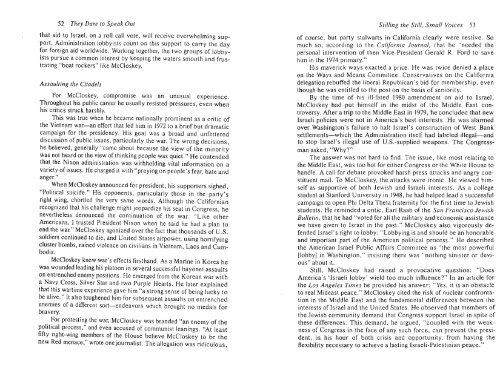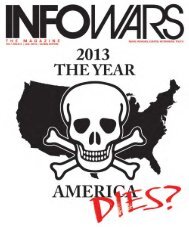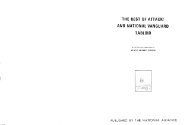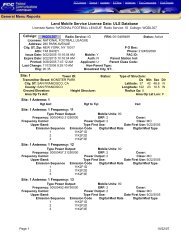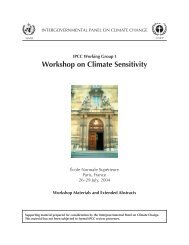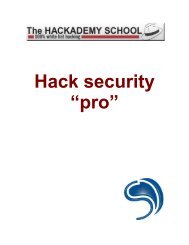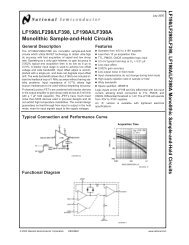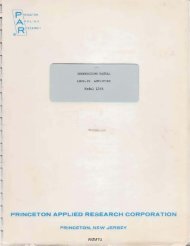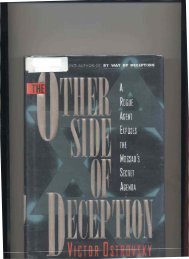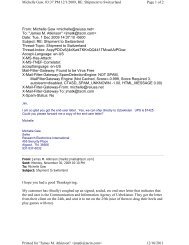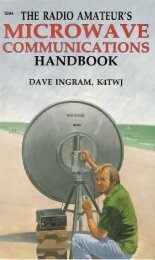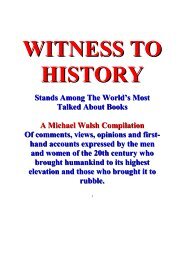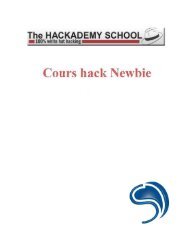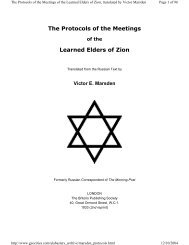They Dare to Speak Out
They Dare to Speak Out
They Dare to Speak Out
You also want an ePaper? Increase the reach of your titles
YUMPU automatically turns print PDFs into web optimized ePapers that Google loves.
52 <strong>They</strong> <strong>Dare</strong> <strong>to</strong> <strong>Speak</strong> <strong>Out</strong><br />
that aid <strong>to</strong> Israel, on a roll call vote, will receive overwhelming support.<br />
Administration lobbyists count on this support <strong>to</strong> carry the day<br />
for foreign aid worldwide. Working <strong>to</strong>gether, the two groups of lobbyists<br />
pursue a common interest by keeping the waters smooth and frustrating<br />
"boat rockers" like McCloskey.<br />
Assaulting the Citadels<br />
For McCloskey, compromise was an unusual experience.<br />
Throughout his public career he usually resisted pressures, even when<br />
his critics struck harshly.<br />
This was true when he became nationally prominent as a critic of<br />
the Vietnam war-an effort that led him in 1972 <strong>to</strong> a brief but dramatic<br />
campaign for the presidency. His goal was a broad and unfettered<br />
discussion of public issues, particularly the war. The wrong decisions,<br />
he believed, generally "came about because the view of the minority<br />
was not heard or the view of thinking people was quiet." He contended<br />
that the Nixon administration was withholding vital information on a<br />
variety of issues. He charged it with "preying on people's fear, hate and<br />
anger."<br />
When McCloskey announced for president, his supporters sighed,<br />
"Political suicide." His opponents, particularly those in the party's<br />
right wing, chortled the very same words. Although the Californian<br />
recognized that his challenge might jeopardize his seat in Congress, he<br />
nevertheless denounced the continuation of the war: "Like other<br />
Americans, I trusted President Nixon when he said he had a plan <strong>to</strong><br />
end the war." McCloskey agonized over the fact that thousands of U.S.<br />
soldiers continued <strong>to</strong> die, and United States airpower, using horrifying<br />
cluster bombs, rained violence on civilians in Vietnam, Laos and Cambodia.<br />
McCloskey knew war's effects firsthand. As a Marine in Korea he<br />
was wounded leading his pla<strong>to</strong>on in several successful bayonet assaults<br />
on entrenched enemy positions. He emerged from the Korean war with<br />
a Navy Cross, Silver Star and two Purple Hearts. He later explained<br />
that this wartime experience gave him "a strong sense of being lucky <strong>to</strong><br />
be alive." It also <strong>to</strong>ughened him for subsequent assaults on entrenched<br />
enemies of a different sort-endeavors which brought no medals for<br />
bravery.<br />
For protesting the war, McCloskey was branded "an enemy of the<br />
political process," and even accused of communist leanings. "At least<br />
fifty right-wing members of the House believe McCloskey <strong>to</strong> be the<br />
new Red menace," wrote one journalist. The allegation was ridiculous,<br />
Stilling the Still, Small Voices 53<br />
of course, but party stalwarts in California clearly were restive. So<br />
much so, according <strong>to</strong> the California Journal, that he "needed the<br />
personal intervention of then Vice-President Gerald R. Ford <strong>to</strong> save<br />
him in the 1974 primary."<br />
His maverick ways exacted a price. He was twice denied a place<br />
on the Ways and Means Committee. Con servatives on the California<br />
delegation rebuffed the liberal Republican's bid for membership, even<br />
though he was entitled <strong>to</strong> the post on the basis of seniority.<br />
By the time of his ill-fated 1980 amendment on aid <strong>to</strong> Israel,<br />
McCloskey had put himself in the midst of the Middle East controversy.<br />
After a trip <strong>to</strong> the Middle East in 1979, he concluded that new<br />
Israeli policies were not in America's best interests. He was alarmed<br />
over Washing<strong>to</strong>n's failure <strong>to</strong> halt Israel's construction of West Bank<br />
settlements-which the Administration itself had labeled illegal-and<br />
<strong>to</strong> s<strong>to</strong>p Israel's illegal use of U.S.-supplied weapons. The Congressman<br />
asked, "Why?"<br />
The answer was not hard <strong>to</strong> find. The issue, like most relating <strong>to</strong><br />
the Middle East, was <strong>to</strong>o hot for either Congress or the White House <strong>to</strong><br />
handle. A call for debate provoked harsh press attacks and angry constituent<br />
mail. To McCloskey, the attacks were ironic. He viewed himself<br />
as supportive of both Jewish and Israeli interests. As a college<br />
student at Stanford University in 1948, he had helped lead a successful<br />
campaign <strong>to</strong> open Phi Delta Theta fraternity for the first time <strong>to</strong> Jewish<br />
students. He reminded a critic, Earl Raab of the San Francisco Jewish<br />
Bulletin, that he had "voted for all the military and economic assistance<br />
we have given <strong>to</strong> Israel in the past." McCloskey also vigorously defended<br />
Israel's right <strong>to</strong> lobby: "Lobbying is and should be an honorable<br />
and important part of the American political process." He described<br />
the American Israel Public Affairs Committee as "the most powerful<br />
[lobby] in Washing<strong>to</strong>n," insisting there was "nothing sinister or devious"<br />
about it.<br />
Still, McCloskey had raised a provocative question: "Does<br />
America's 'Israeli lobby' wield <strong>to</strong>o much influence?" In an article for<br />
the Los Angeles Times he provided his answer: "Yes, it is an obstacle<br />
<strong>to</strong> real Mideast peace." McCloskey cited the risk of nuclear confrontation<br />
in the Middle East and the fundamental differences between the<br />
interests of Israel and the United States. He observed that members of<br />
the Jewish community demand that Congress support Israel in spite of<br />
these differences. This demand, he argued, "coupled with the weakness<br />
of Congress in the face of any such force, can prevent the president,<br />
in his hour of both crisis and opportunity, from having the<br />
flexibility necessary <strong>to</strong> achieve a lasting Israeli-Palestinian peace."


